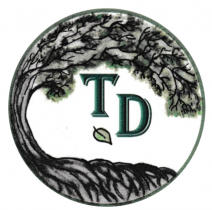Last week I went back to my college to present my dissertation to the current diploma students. My dissertation was an exploration about autism on its own and in the context of our modality of counselling: the person – centred approach.
Some of my own personal reflection was based on what autism meant to me, and what my understanding was at the start of my research and how that changed.
The questions asked by the students at the end of the presentation generated some interesting reflections about the process of obtaining the diagnosis of autism – why this feels important or useful especially to parents of individuals struggling in a world where their way of being is different to those around them.
As a person – centred therapist, I struggle with the concept of diagnoses which seem to essentially ‘lump’ people together based on characteristics, on ways of reacting to distress or personality traits. I want to see the individual in front of me. That such ‘labels’ allow for a greater understanding by society and the individual allows me to reconcile my reservations regarding diagnosis with an awareness that for some people such labels are very helpful. (Actually, I have seen how useful having a diagnosis can be.)
I found a useful analogy for autism that I understood was recognising that being left - handed is an example of neurodiversity. I am left handed. I can write with my right hand (having had two elderly maiden aunts telling me I ought to push myself to use my right hand!). When I do use my right hand for writing - my hand aches, it takes much more concentration and it is not always communicating what I meant to (it's often illegible!).
For an autistic person who has tried all day at school to maintain eye contact as their teacher expects them to; negotiating crowded corridors and other experiences that can feel difficult to navigate - might feel exhausting. Parents often describe the 'meltdown' of their autistic child when they have returned home from anywhere they have been desperately 'holding it together' for hours of their day. This feels pretty understandable when I consider the analogy of being left - handed described above.
Of course, people don't generally come to counselling because someone has told them they are autistic. It is often the effect of living in a society who have certain expectations about how to communicate, to process, to behave; that can lead to anxiety, low mood and stress. And this is what brings someone to counselling. In that respect, the person - centred therapist is not meeting a client who is autistic or neuro-diverse but someone who is in distress.
The video shown here is reflecting what was going on for me at the beginning of the research process – some discomfort about the diagnosis of people because they don’t quite 'fit in' with society. How I questioned diagnosis in the first place and how I had hope that sitting alongside someone (whoever they are) would be enough to facilitate the sort of personality growth people are searching for when they go to counselling.
Watch this space for further explorations about neuro - diversity and counselling!
Thank you for reading.
